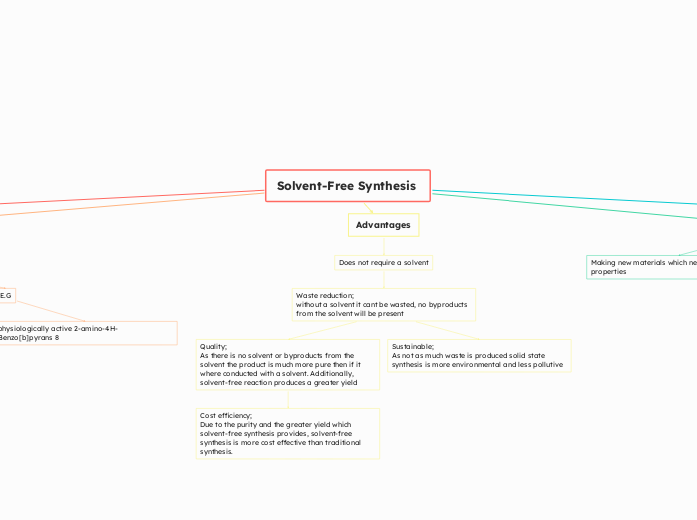da Lysten823 Luna mancano 10 mesi
106
Solvent-Free Synthesis
Solvent-free synthesis represents a significant advancement in the chemical synthesis industry by eliminating the use of solvents, thus reducing pollution and increasing cost efficiency.

da Lysten823 Luna mancano 10 mesi
106

Più simili a questo
Sustainable; As not as much waste is produced solid state synthesis is more environmental and less pollutive
Quality; As there is no solvent or byproducts from the solvent the product is much more pure then if it where conducted with a solvent. Additionally, solvent-free reaction produces a greater yield
Cost efficiency; Due to the purity and the greater yield which solvent-free synthesis provides, solvent-free synthesis is more cost effective than traditional synthesis.
physiologically active 2-amino-4H-Benzo[b]pyrans 8
Carboxymethyl Cellulose (CMC)
Historically, this theory was used to preserve food product, remove the median of the reaction thus slowing it down considerably.
Pollutive
Due to creating waste it is often inefficient